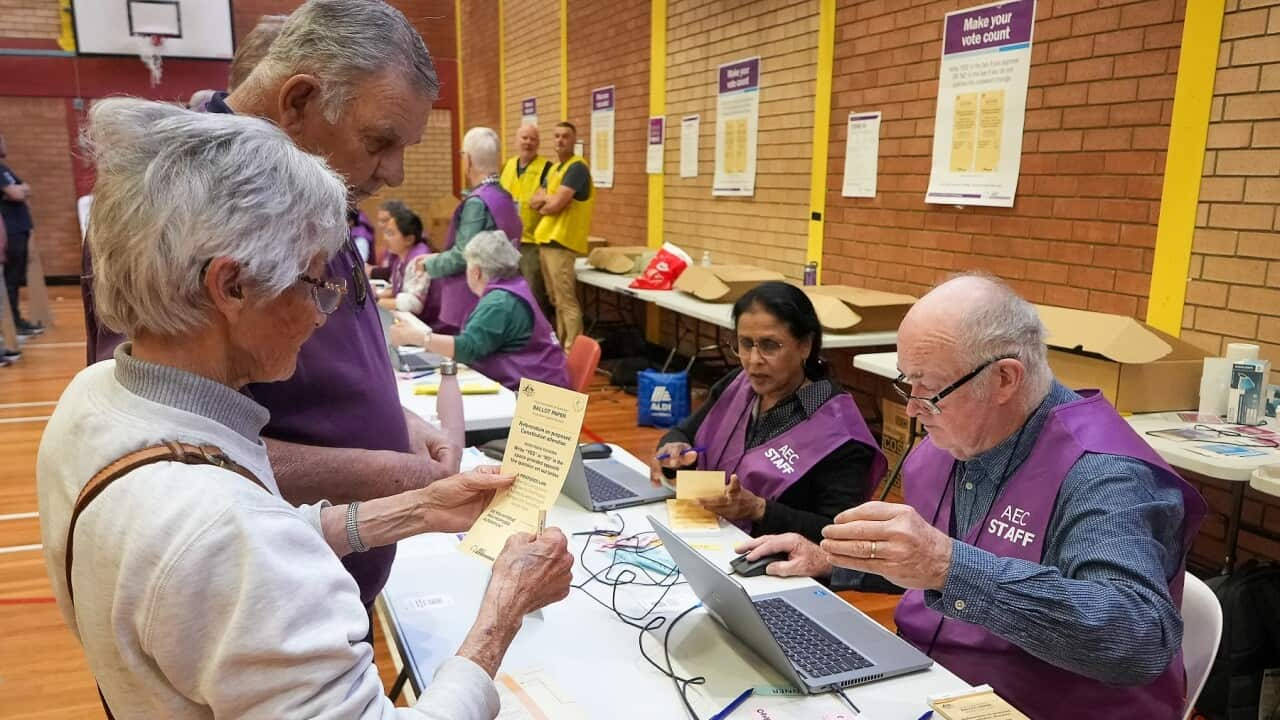TRANSCRIPT
Without bipartisan support, the Indigenous Voice to Parliament was doomed.
Australian voters comprehensively rejected the proposal to change the Constitution with all states and the Northern Territory voting No, with only the ACT voting Yes.
Prime Minister Anthony Albanese urged Australians to come together after the referendum failed, saying the result "doesn't define us".
“I absolutely respect the decision of the Australian people and the democratic process that has delivered it. When we reflect on everything happening in the world today, we can all give thanks that here in Australia we make the big decisions peacefully and as equals.”
The Minister for Indigenous Australians, Linda Burney, spoke directly to Aboriginal and Torres Strait Islanders.
“I know the last few months have been tough but be proud of who you are, be proud of your identity, be proud of the 65,000 years of history and culture that you are part of.”
Opposition Leader Peter Dutton blamed the Prime Minister for the outcome, saying Anthony Albanese didn't listen to what people wanted.
“If he was going to have a referendum, then do it on recognition because 70, 80, 90 per cent of Australians would support recognition being enshrined in the constitution - but he didn't do that.”
And Independent Senator Lidia Thorpe welcomed the failure of the Voice referendum.
“We need a treaty in this country. We are one of only a couple of Commonwealth countries in the world that does not have a treaty with its first people.”
Away from the referendum, cost-of-living pressures dominated the news cycle with high inflation and a series of interest rate rises.
In September, Treasurer Jim Chalmers delivered a record budget surplus of more than $22 billion, the first in 15 years.
The final figure was revised up in December from the May Budget, thanks to surges in tax revenue and higher commodity prices.
“This is evidence of our responsible economic management which is getting the budget in much better nick (condition) at the same time as we roll out billions of dollars in cost-of-living relief.”
The Coalition's Treasury spokesman, Angus Taylor, was unimpressed, saying the economy is in tatters and calling the Albanese government a high-taxing, high-spending administration.
“We've seen interest costs tripling since Labor came to power. We've seen, as I've said, a 27 per cent increase in income taxes paid by households and household disposable income down by 8.6 per cent in the last 18 months.”
In December, the Reserve Bank left the cash rate on hold at 4.35 per cent as it aims to bring down inflation back into its target range of between 2 and 3 per cent by the end of 2025.
To that end, the new Reserve Bank Governor Michele Bullock wants to see an increase in unemployment to help slow the economy as Australia's inflation rate is around 5.4 per cent.
At a conference in Hong Kong in November, she told delegates Australian households are holding up despite misgivings over the interest rate rises of the past two years.
“And that's created a lot of noise. People are very unhappy. The cash flow channel works very quickly in Australia and it's very prominent. But what I'd like to highlight here is despite that noise, households and businesses in Australia are actually in a pretty good position. Their balance sheets are pretty good.”
The new Governor will be at the helm as the Reserve Bank of Australia [[RBA]] introduces a number of key changes from February.
They follow a review into the organisation which made 51 recommendations, including addressing conflicts of interest and creating a more open culture.
One key change will be a cut to the number of meetings it holds annually to set interest rates, from 11 to eight.
And the board, rather than the governor, will release the post-meeting statement as part of a new communications strategy.
Another important development in federal politics this year was the High Court decision that found indefinite immigration detention was unlawful.
Amid hot political debate, in December the federal government decided to set up a new board to deal with the management of more than 150 people who were released from indefinite detention following the ruling.
When it became public that some of the detainees had criminal records, the government passed laws that put tough restrictions on them, including curfews and ankle bracelets.
The Home Affairs Minister, Clare O'Neil says the board will advise the government on which restrictions should be placed on a detainee, including returning them to detention.
And 2023 saw one of Australia's most senior public servants sacked for breaching the public service code of conduct on at least 14 occasions.
The Home Affairs Secretary Mike Pezzullo was sacked after revelations he inappropriately tried to influence policy under the former Coalition government.













